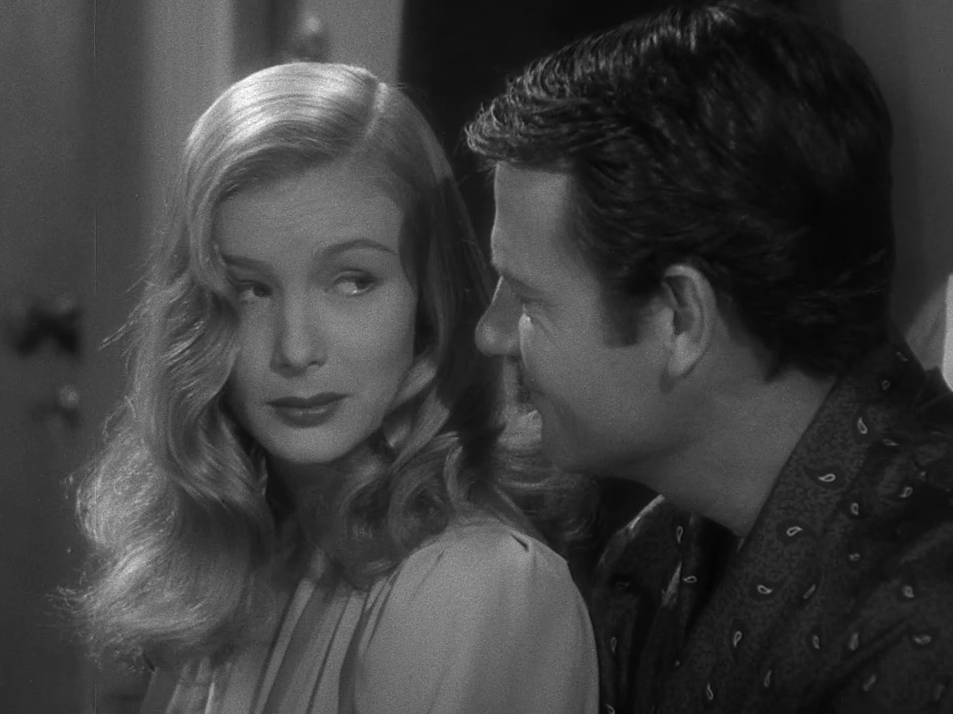
Sullivan: I want this picture to be a... document. I want to hold a mirror up to life. I want this to be a picture of dignity... a true canvas of the suffering of humanity.
LeBrand: But with a little sex in it.
Sullivan: [reluctantly] But with a little sex in it.
“Of course, other readings of this scene present themselves; after all, both light entertainment and religion have been accused of being means to the same end – keeping those who never get a piece of the pie in a state of quasi-satisfaction, taking their attention away from more radical solutions. This, however, does not seem to be Sturges’ point. Sullivan’s Travels is quite unequivocal in its stance: a full recognition of the fact that the American experience is a real nightmare to a large segment of its citizens, and the almost equally plain conclusion that there is nothing one can do about it, making the film a curious mix of daring social criticism and tremendous resignation.”
Jonas Varsted Kirkegaard1
Kent Jones: But the Marx Brothers moment in Hannah and Her Sisters is in keeping with the scene in Manhattan where you’re naming the things that make life worth living. It also seems directly related to the end of Sullivan’s Travels.
Woody Allen: Well, I’ll tell you an interesting thing. I only saw Sullivan’s Travels after I made Stardust Memories. I had never been an enormous fan of Preston Sturges.
Were you thinking of Unfaithfully Yours when you shot the scene in the detective’s office in Midnight in Paris?
No, but I did love that movie, because it was Sturges, who was an urbane wit, doing an urbane movie. When he worked with William Demarest and Eddie Bracken and Betty Hutton, it was more bumpkin humor, and I couldn’t warm up to that. I, personally, was a Lubitsch fan, because Lubitsch was cosmopolitan and sophisticated, and unsentimental to the end. And in that one movie, Sturges was cosmopolitan, and I thought it was wonderful. People thought I’d been influenced by Sullivan’s Travels when I did Stardust Memories. Jessica Harper, who was in that movie with me, said, “You have to see Sullivan’s Travels! It’s just like this movie and you’ll love it.” I did see it afterwards and I didn’t love it. But I do think he was a great film director. I thought his pacing was great and he knew how to write. It’s just that I personally was a Lubitsch man. I am a paleface rather than a redskin. I like the European material very much. I respond to it. When you get out toward the middle of the country and the West, I can appreciate things but I don’t enjoy them as much. I’ve often said, not so facetiously, that when I was a kid and a film began with a pan of the New York skyline, I was right with ’em. But when they were rural, I could appreciate the movies, but I had trouble personally enjoying them. I still do.
So I’m assuming that you think the end of Sullivan’s Travels is unearned as well.
Yes, it’s a commercial cop out, because life does not have an ending or a resolution. It’s an unearned optimism.
Kent Jones2
- 1Jonas Varsted Kirkegaard, “Way Ahead: How Hollywood’s Funny Man Got Away With Murder”, Senses of Cinema, 2004.
- 2Kent Jones, “Interview: Woody Allen. The full-length version”, Film Comment, 2011.

